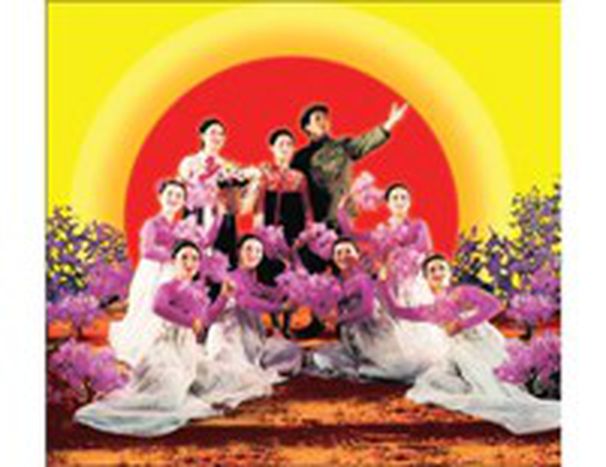
‘The North Korean regime annuls individuality. I immortalised that’
Published on
Translation by:
 leila reid
leila reid
Pierpaolo Koss exclusively reveals what it is like to be one of the few Western artists to have worked in one of the world’s most isolated countries
Nuclear weapons, inspections, experiments; press coverage of North Korea rarely addresses the artistic perspective. Yet to really understand the absurd and surreal aspects of this regime, on its return to the negotiating table on December 18, one cannot avoid the 'blanket propaganda' dedicated to celebrating rulers Kim II-Sung, the 'Dear Leader' and ‘Founder’ of a country which died in 1994, and his son Kim Jong-il, who continues to rule the country today. Pierpaolo Koss – choreographer, director, and photographer – documented this propaganda when he visited the country in 1992, in a series of videos and photographs recently exhibited in Barcelona.
A trip to North Korea is something not everyone experiences. How was it?
In 1992 I was invited, not without considerable surprise, to visit North Korea for a convention on the choreography and corpography of mass expression. I was the delegate of the Italian Dance Council, a cultural organisation linked to the International Dance Council under UNESCO. We left East Berlin on the ‘Berlin-Moscow-Pyongyang Friendship Route’, which was closed in 1994. At Moscow about four men boarded, all in blue suits with red ties and wearing badges depicting the Dear Leader. When I got up to go to the toilet, a flight attendant suggested I ask their permission; it was clear that we had been taken into the custody of the North Korean internal security services.
Since 1994, North Korea has been in the control of Kim Jong-il. Is he really the ‘God of the North Koreans’?
He is a ruthless feudal tyrant yet, at the same time, he's bizarrely modern. He's honoured in a similar way to the Egyptian pharaohs and his birthday, like that of his father, is a national holiday.
The cult of personality dedicated to Kim il-Sung is like an actual religion, and indeed many miracles have been attributed to him. In the same way Kim Jong-il is venerated today as the 'son of a God'. There are images of him and his father everywhere. Enormous statues and temples are dedicated to them like those of Confucian emperors.
Pyongyang is the showcase of their absolute power. It appears a sacred city dedicated to the cult of the father and son. Every inch of urban architecture is a titanic shrine to this unique Communist hereditary monarchy dominated by the Juche (Autarchy) Tower, so-called as a symbol of the Dear Leader’s ideology. It stands at 150 metres and is topped by a great glass flame which is never dimmed.
Let’s talk about your artistic work. It’s focussed upon ideas of body and identity; how did the vision of the North Korean’s loss of individuality strike you?
In my artistic research there’s an attempt to excavate the body, generating repulsion and revulsion. A rebellious body that’s a hybrid of different realities tends toward neutrality, toward metamorphosis.
My work on North Korea confronts this theme of the body and it’s mise en scene, as it undergoes a sacrificial rite. It’s like a carnival which explodes - or implodes - that violence of the social corpus which annuls individuality in order to protect ourselves in fantasy. In North Korea, one finds the oceanic festivals of the regime unravelling in great stadia dedicated to the Dear Leader. Grandiose, with perfectly geometric choreography; no ceremony outside the opening of the Olympics has ever reached such dimensions: hundreds of thousands of people are painted in the colours of the regime, and move like living pixels in a great fresco.
I tried to show my inevitable unease at witnessing this loss of individuality, saturating the colours of the repetitive frenzy of the bodies and their pop grandiosity; colours which through the digital surface give life to faithful but increasingly surreal images in luminous colour. I’ve tried to accentuate to the highest level the surreal parody of totalitarian power, and framed it in the conviction that foreigners too remain impressed by so much beauty and so much power.
Translated from L'artista: «Il regime nordcoreano annulla l’individualità. L'ho immortalato»


